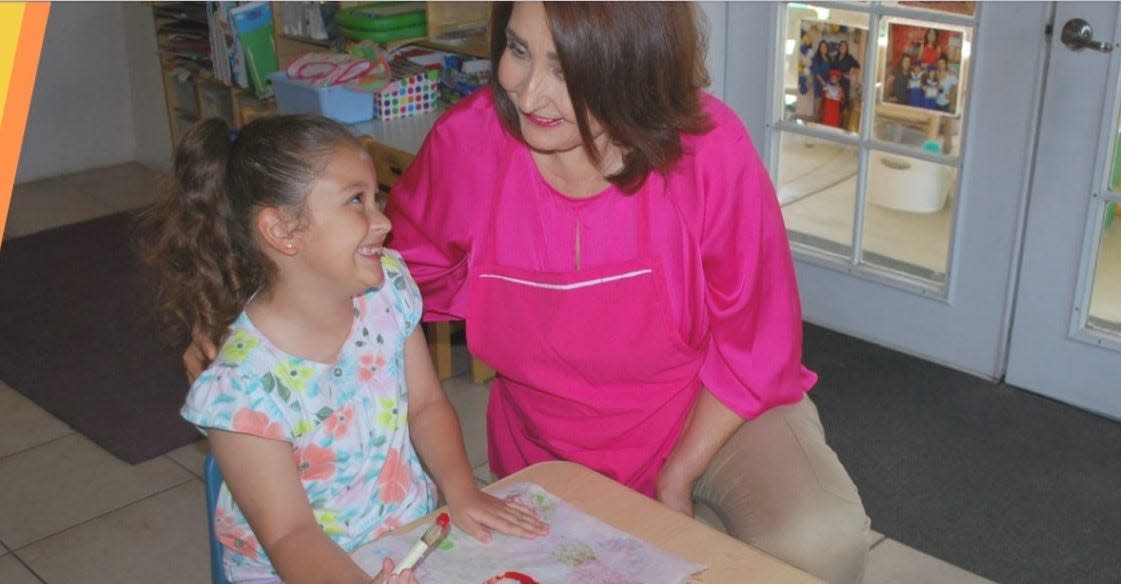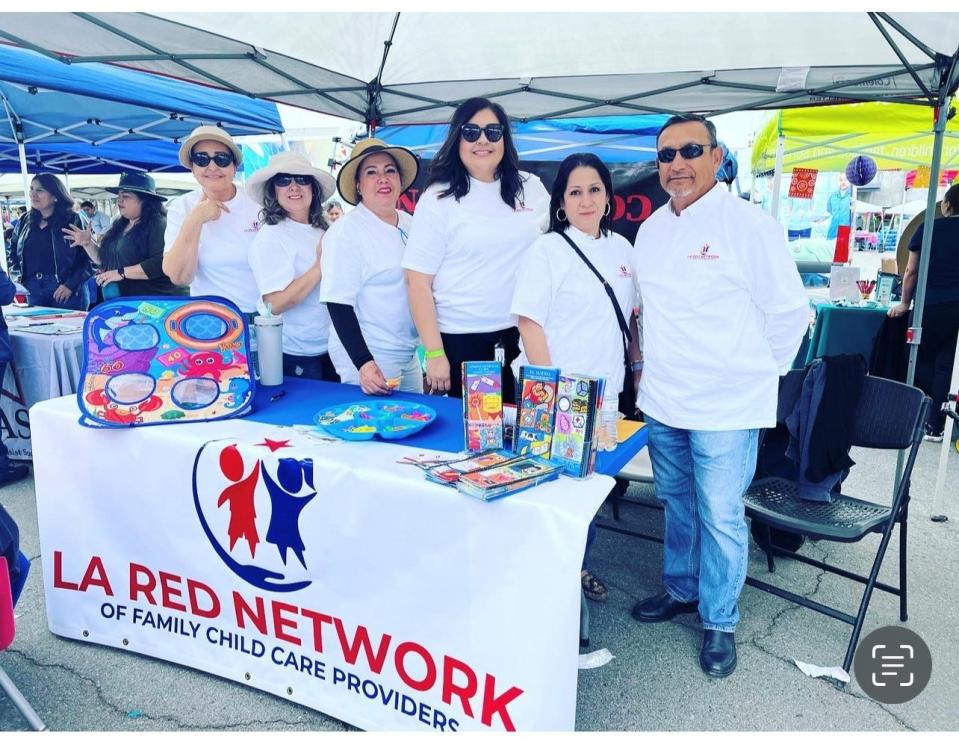East valley-based network of home child care providers says more government support needed

Rosa Bobadilla’s Indio home child care business is in crisis.
The COVID-19 pandemic brought challenges, including temporary closures of her child care center and the loss of some families who decided they no longer wanted their children to be cared for in a home with other children during a pandemic.
But it also brought cost relief for many of the families the business serves. That relief came in the form of the state waiving family fees, which is the amount families who earn relatively low incomes are required to pay to receive child care that is otherwise subsidized by the state.
But those waivers are about to come to an end after Gov. Gavin Newsom vetoed a bill last month that would’ve made the waivers permanent.
“The waivers kind of gave families a break,” said Bobadilla, who noted that families have for over a year now had to deal with inflation that has fueled a rapidly increasing cost of living and has strained their ability to pay for essentials, including child care.
Now, Bobadilla says she and her mom, who she runs their center with, are bracing for the impact of the end of the waivers, which she says will only further lay bare the many ways that the economics of home child care businesses like hers are no longer working for both providers and the families they serve.

On Monday, many such businessowners and their supporters came together on Zoom for a rally that Bobadilla said was meant to draw attention to what it really costs to run a family child care business, and explain why many operators feel they cannot afford to charge rates that cover those costs. The rally was held as part of A Day Without Childcare, a national effort to draw attention to issues with child care nationwide that saw hundreds of providers across the nation shut their doors for the day.
Bobadilla said she recognizes the families her home child care center serves are impacted by the current economic situation, but they aren’t the only ones being squeezed by inflation’s impacts.
“It’s the same thing for us running our child care with the cost of food and the cost of labor it’s hard to compete with other [child care] businesses that are corporations,” she said.
She brings up the example of trying to hire an assistant, which she says has become harder and more competitive than ever at a time when people can go work at McDonald’s and get paid $18-$20 an hour.
Bobadilla says such struggles are particularly common in the east Coachella Valley, which is home to dozens of home child care business like hers that provide care to local families. That’s why in 2020, she formed La Red Network of Family Child Care Providers, a group of Spanish-speaking providers from the east valley that holds two meetings a month over Zoom to discuss everything from applying for grant funding from the county to pushing for better support from the state. The organization served as the official host of the virtual rally Monday.
Bobadilla said she and other local providers ultimately want to see the state move to fully covering the cost of child care for the families they serve. The current amount the state pays, which is calculated based on the cost of living in a given county, is not sufficient considering the amount of work that goes into providing high-quality child care, she said.
She adds that those who set the rates often overlook the amount of time people like her spend planning out food schedules and the educational curriculum for the kids they serve, as well as handling the business side of their operations. Larger child care centers have the advantage of being able to afford their own janitorial and administrative staff, she said, which allows the child care providers to focus on their main job of providing care. But she doesn’t have that luxury, she said.
“In family child care, we're doing all those things,” she said. “What for most people is a 40-hour week is more like 60 for me. ... We’re just really looking for a livable wage and affordable child care for families.”
During Monday’s rally, Elizabeth Hernandez, who also operates a home child care business in the area, spoke about the problems raised by the end of the family fee waiver. However, she also bemoaned another potential challenge: the state’s ongoing expansion of free pre-kindergarten and similar programs.
Hernandez explained that over ¾ of the kids she serves could be eligible to get free preschool from the state, leaving her and her assistant with just two remaining kids.
“My question is, how are we going to survive?” she said.
Meanwhile, education expert Arturo Hernandez, who lives in Indio, spoke about his belief that the state needs to ensure that both current and future programs to fund child care are addressing, and not furthering, social inequities.
“Brown and Black babies have fewer positive outcomes than their white peers in nearly every metric you use to assess early childhood wellbeing,” he said. “We need to start evaluating these policies and systems with a cultural lens and, if needed, we need to fix these policies and systems to give the next generation of Black and Brown babies the same chance to thrive.”
La Red Network of Family Child Care Providers gained nonprofit status in late October 2022, and has since received two grants that have been put towards startup costs such as creating a formal website. Bobadilla said the four-member board of directors is also hoping to launch a campaign to seek funds from private and/or public entities so they can issue needs-based micro grants to various child care providers throughout the valley.
In the meantime, Bobadilla and the board is focusing on helping all the providers in their network however they can, from hosting educational lectures in their new space at the Regional Access Project Foundation building to attending the "In Our Hands " Early Childhood Conference on April 1 in Indian Wells.
"We're just taking it step by step," she said. "And we're slowly getting there."
Note: La Red Network of Family Child Care Providers is seeking 3-4 board members with no conflict of interest outside of the family child care field. Spanish-speaking individuals with a passion for supporting child care providers are encouraged to reach out. Email rosa@rpchildcarenetwork.org for more information.
Coverage of nonprofits in the Coachella Valley for The Desert Sun is supported by a grant from the CIELO Fund through the Inland Empire Community Foundation. Kevin Caparoso is a features intern who covers arts and life around the Coachella Valley. His internship is funded by the Coachella Valley Journalism Foundation. Follow him on Twitter at @kevydean or email him at KCaparoso@gannett.com.
This article originally appeared on Palm Springs Desert Sun: East valley child care providers rally for more government support

